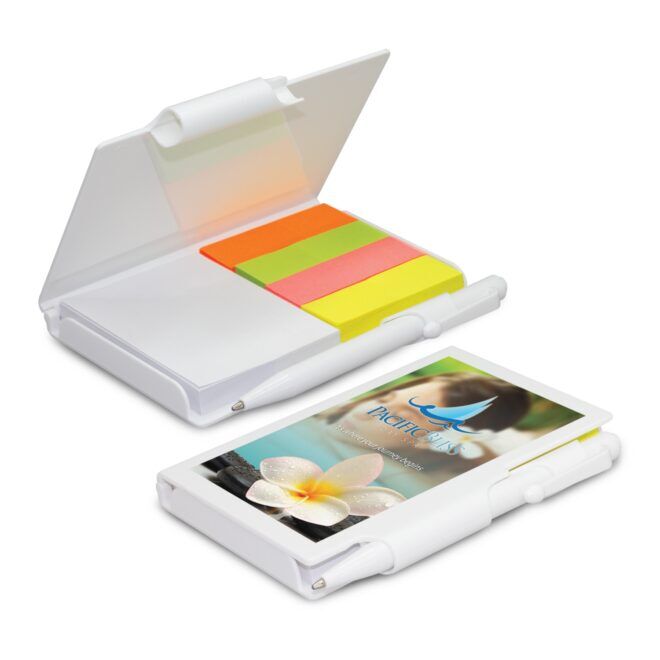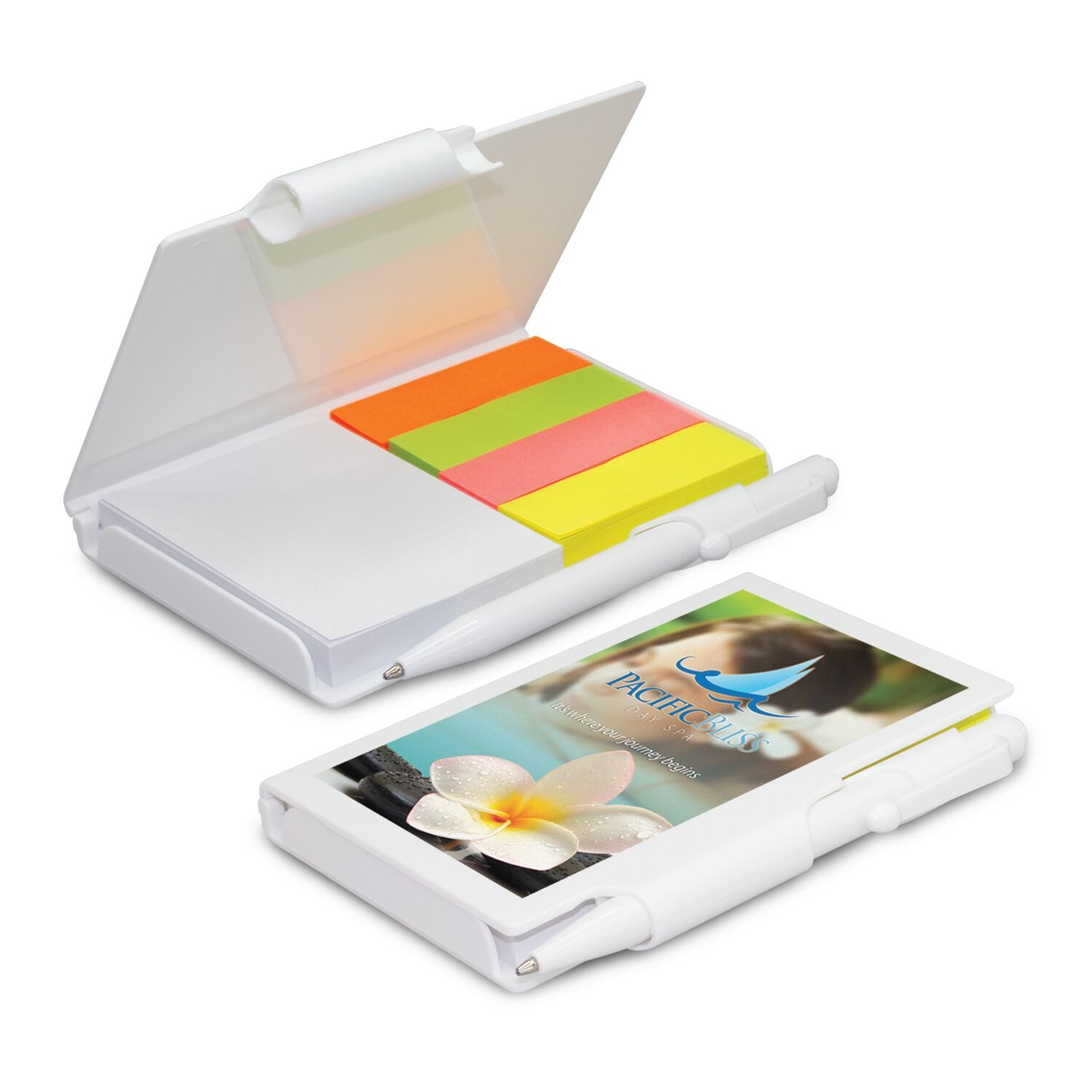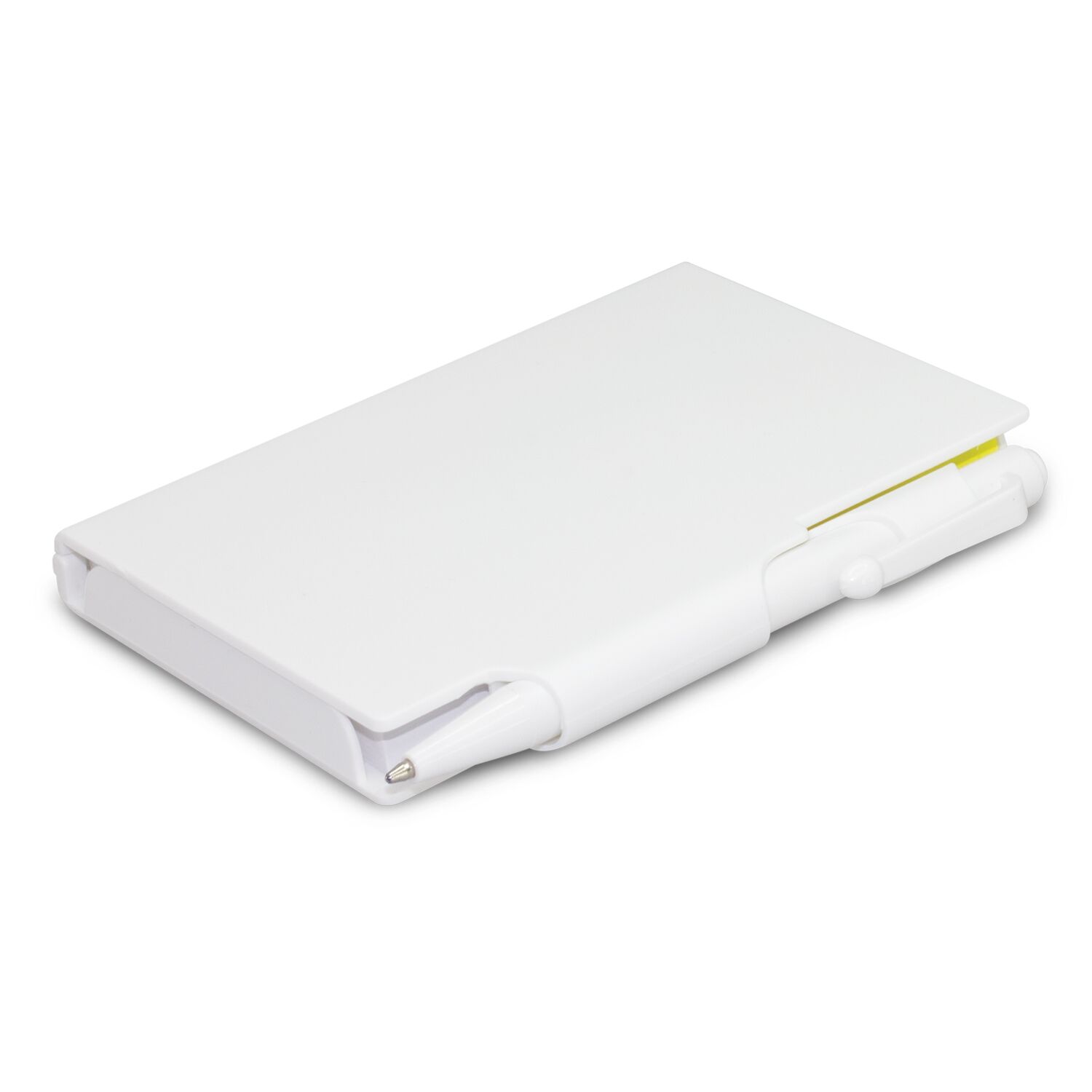Description
Pocket-size notebook in a compact plastic case which has a pen that locks the case closed when it is inserted in the pen holder. It has a pad of adhesive notes and a pad of adhesive flags in four bright colours.
Country of Origin: China
Loose packed.
Dimensions:
W 81mm x L 105mm x 11mm.
Additional information
| Decoration | 1 Colour Pad Print – Note Pad – 50mm x 65mm., 1 Colour Pad Print – Pen – 45mm x 6mm., 1 Colour Screen Print, 2 Colour Pad Print – Note Pad – 50mm x 65mm., 2 Colour Pad Print – Pen – 45mm x 6mm., 2 Colour Screen Print, 3 Colour Pad Print – Note Pad – 50mm x 65mm., 3 Colour Pad Print – Pen – 45mm x 6mm., 3 Colour Screen Print, Direct Digital |
|---|---|
| Colour | White |
| Production Time | 2 Weeks Production Time |
Our guarantee
All of our products are fully guaranteed to work, look and feel as designed.
Our most highly regarded company value at Good Things is integrity. We do what we say we are going to do in a timely fashion. We get "Back in a Flash" to all our clients for quotes, artwork and samples.
It is essential in our industry - from meeting delivery deadlines, through to having a product match a sample when delivered to each minute detail.
When dealing with us you can expect to get exactly what you ordered: as agreed, and on time. That is the Good Things Guarantee.
Product reviews
Flag Pad
99.4% jobs
delivered on-time
Free graphic
design
Quotes within
24 hours
Get an instant quote
Description
Pocket-size notebook in a compact plastic case which has a pen that locks the case closed when it is inserted in the pen holder. It has a pad of adhesive notes and a pad of adhesive flags in four bright colours.
Country of Origin: China
Loose packed.
Dimensions:
W 81mm x L 105mm x 11mm.
Additional information
| Decoration | 1 Colour Pad Print – Note Pad – 50mm x 65mm., 1 Colour Pad Print – Pen – 45mm x 6mm., 1 Colour Screen Print, 2 Colour Pad Print – Note Pad – 50mm x 65mm., 2 Colour Pad Print – Pen – 45mm x 6mm., 2 Colour Screen Print, 3 Colour Pad Print – Note Pad – 50mm x 65mm., 3 Colour Pad Print – Pen – 45mm x 6mm., 3 Colour Screen Print, Direct Digital |
|---|---|
| Colour | White |
| Production Time | 2 Weeks Production Time |
Our guarantee
All of our products are fully guaranteed to work, look and feel as designed.
Our most highly regarded company value at Good Things is integrity. We do what we say we are going to do in a timely fashion. We get "Back in a Flash" to all our clients for quotes, artwork and samples.
It is essential in our industry - from meeting delivery deadlines, through to having a product match a sample when delivered to each minute detail.
When dealing with us you can expect to get exactly what you ordered: as agreed, and on time. That is the Good Things Guarantee.


